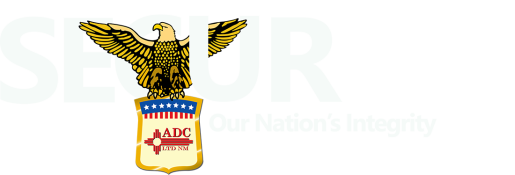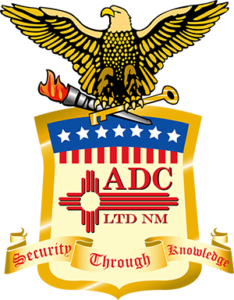
5 Common Mistakes to Avoid When Conducting Reference Check
Conducting a thorough reference check is crucial for making informed decisions about potential candidates when hiring for a new position. Unfortunately, many employers overlook this vital step, leading to inaccurate assessments and costly hiring errors.
This article will investigate five common mistakes made during these checks and provide actionable tips to ensure a successful outcome.
By addressing these pitfalls head-on, you can gather valuable insights about your candidates and make more informed decisions. You can also avoid the common missteps arising from inadequate checking.

Mistake #1: Skipping Reference Checks Altogether
Skipping these checks is a grave mistake that can significantly affect hiring decisions and overall organizational health.
These days, many find it reasonable to bypass this step, especially when they’re eager to fill a position quickly. However, doing so can leave you unaware of crucial information about a candidate’s past performance and suitability for the role.
These checks generally provide insights not typically captured through resumes and interviews, offering a more comprehensive view of the candidate.
By not doing reference checking, you may hire someone who does not align with your organization’s values or performance expectations. It can even decrease productivity and additional costs associated with rehiring and re-training new employees.
Instead of skipping this vital step, allocate sufficient time and resources to conduct thorough checks for all potential hires. Develop a standardized process that includes targeted questions to uncover critical aspects of the candidate’s work history and character.
It helps ensure consistency in your hiring process and enables you to make more informed and confident hiring decisions.
Remember, the short-term effort invested in conducting a thorough employment reference check can pay off significantly in the long run. It will help you build a solid and reliable team.
Mistake #2: Failing to Prepare Properly
Preparation is essential for these checks. However, many employers need to pay more attention to this crucial step. Approaching these checks without adequate preparation can only lead to missed opportunities to gather valuable information about a candidate.
To avoid this costly mistake, take the time to prepare a set of targeted questions to ask when checking references. Include questions that elicit insightful responses about the candidate’s skills, experience, and character.
Start by checking the job description and identifying the competencies and attributes required for the role. It will help you formulate specific and relevant questions.
For example, if the role needs strong project management skills, ask the reference to describe the candidate’s experience managing projects. Include questions that check their ability to meet deadlines and handle challenges.
Avoid generic questions for a reference check, like “Can you tell me about the candidate?” Instead, ask more specific questions such as, “Can you provide an example of a time when the candidate demonstrated leadership?”
These types of questions are more likely to yield detailed and meaningful responses.
Mistake #3: Relying Solely on Written References
While written references can offer valuable insights into a candidate’s background, they often need more depth provided by verbal communication. Depending solely on written references can result in a limited understanding of the candidate’s qualifications and suitability for the role.
To avoid this mistake, prioritize conducting a phone or face-to-face employee reference check whenever feasible. These interactive conversations allow you to delve deeper into the candidate’s background and seek clarification on any areas of ambiguity.
Moreover, verbal references enable you to gauge the reference’s tone, enthusiasm, and sincerity. It can then provide valuable context for interpreting their feedback.
A reference’s tone and demeanor during a conversation can offer insights into their confidence level in the candidate. Lastly, supplementing written references with verbal conversations lets you understand the candidate’s strengths and weaknesses.
Mistake #4: Ignoring Red Flags
Ignoring red flags during the employment reference check process can be costly and have severe implications for hiring decisions. Red flags may manifest as signs of hesitation, evasion, or vague responses from the candidate’s references.
For instance, if a reference seems reluctant to provide examples of the candidate’s achievements, it could be a warning sign. Such behavior might suggest that the candidate had performance issues or interpersonal conflicts that the reference is hesitant to disclose.
It helps to address any red flags promptly by asking follow-up questions to clarify the concerns. For example, when checking references, and they give you a lukewarm endorsement, ask for more details. “Can you elaborate on the candidate’s performance in challenging situations?”
Thoroughly investigating these concerns can help uncover important information that might influence your hiring decision.
Mistake #5: Failing to Verify Information
Failing to verify the information provided by the references is a common oversight that can seriously affect your hiring process. While it’s essential to trust candidates’ information unquestioningly, you need to be able to accept it without verification.
To avoid this pitfall, seek a professional reference checking service. They will verify critical details such as employment history, job titles, and qualifications.
They will also contact previous employers or institutions directly to confirm the accuracy of the information provided by the candidate.
This due diligence ensures that the candidate’s representations have been truthful and accurate. Likewise, it protects your organization from potential liability.
Verifying information can also help you identify candidates who may have misrepresented themselves or exaggerated their credentials.
Investing time and effort in checking references and verifying information may require additional resources upfront. However, it can save you from costly hiring mistakes in the long run.
Avoid Costly Mistakes with ADC
These checks are essential to the hiring process, and employers must pay attention to them. You can employ the best candidates for your organization by avoiding these five common pitfalls.
At ADC, we understand the importance of conducting a thorough background and reference check when hiring. Our comprehensive services help employers make confident decisions and avoid costly hiring mistakes.
Whether hiring for a small startup or a large corporation, we’re here to support you every step of the way. Contact us today to learn more about how we can help streamline your hiring process.

